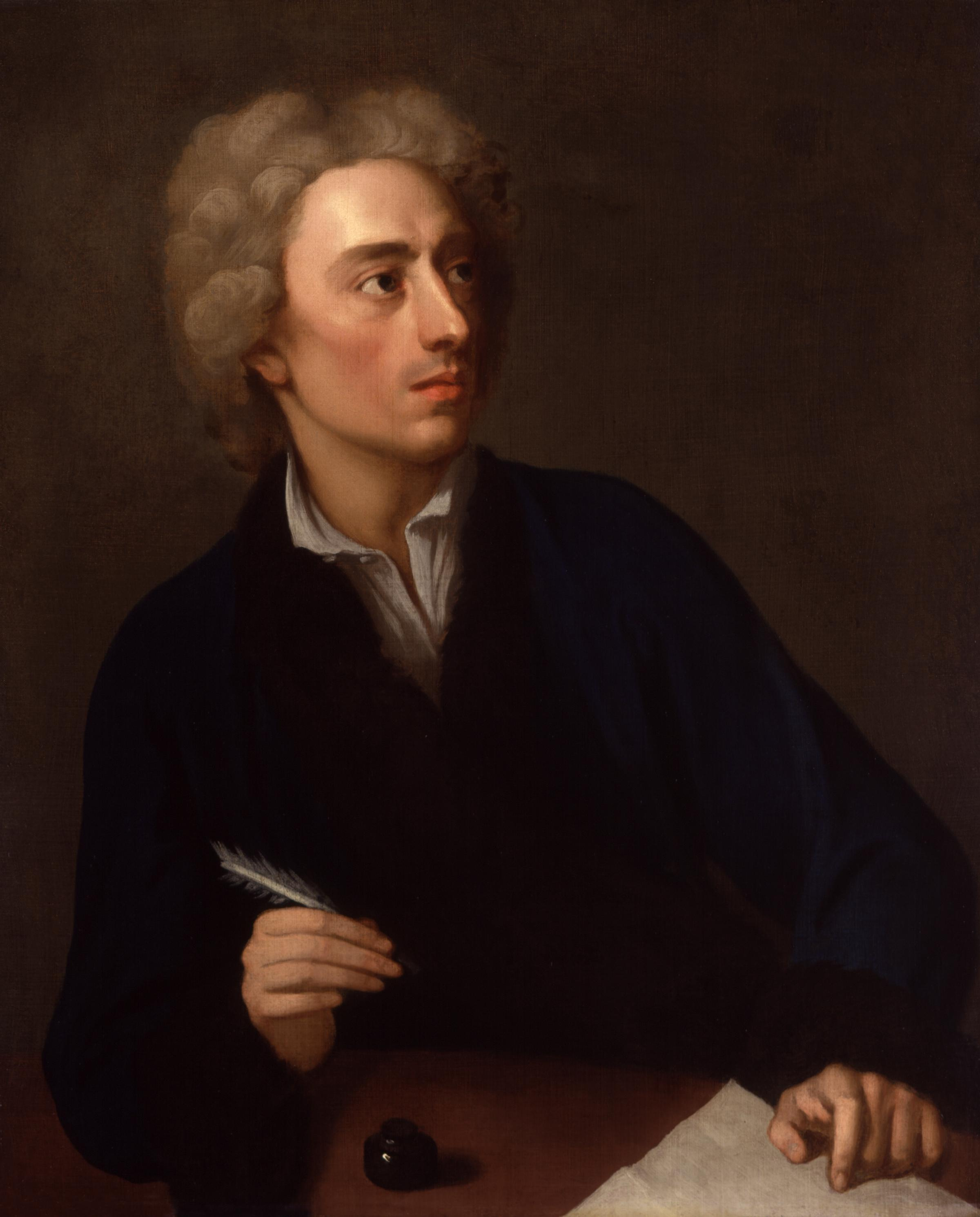Alexander Pope Frases famosas
“A luz e as trevas estão misturadas no caos do homem.”
This light and darkness in our chaos join'd
"Essay on Man" in: "The Works of Alexander Pope", Esq: Esq. with Notes and Illustrations by Himself and Others. To which are Added, a New Life of the Author, an Estimate of His Poetical Character and Writings, and Occasional Remarks - vol. 5, Página 105 http://books.google.com.br/books?id=KCQOAAAAQAAJ&pg=PA105, Printed for J. Rivington,
Citações de homens de Alexander Pope
“Feliz do homem que não espera nada, pois nunca terá desilusões.”
Blessed is he who expects nothing, for he shall never be disappointed.
carta de 6 de outubro de 1727, in: "The works of Alexander Pope. With his last corrections, additions, and improvements. Publ. by mr. Warburton. With occasional notes." - Página 126 http://books.google.com.br/books?id=V0oVAAAAQAAJ&pg=PA126, Alexander Pope - 1751
Alexander Pope frases e citações
“Errar é humano; perdoar é divino.”
To err is human, to forgive divine
"Essay on Criticism" [Ensaio sobre a crítica] ( Escrito no Ano MDCCIX, http://books.google.com.br/books?id=O0IfAAAAMAAJ&pg=PA241&dq=To+err+is+human,+to+forgive+divine+Alexander+Pope&lr=&client=firefox-a#PPA169,M1 primeira publicação na Spectator, N º 65, 15 de maio de 1711); in: "The Works of Alexander Pope, Esq" http://books.google.com.br/books?id=O0IfAAAAMAAJ&pg=PA241&dq=To+err+is+human,+to+forgive+divine+Alexander+Pope&lr=; Por Alexander Pope, Joseph Warton; Publicado por Printed for B. Law, J. Johnson, C. Dilly [and others], 1797, página 236
“Uma pessoa honesta é a obra mais maravilhosa de Deus.”
An honest man's the noblest work of God
"Essay on Man, Epistle IV. Of the Nature and State of Man with repect to Happiness"; in http://books.google.com.br/books?id=ZGRj7T5ZrFMC&pg=PA143&dq=%22An+honest+man%27s+the+noblest+work+of+God%22+Alexander+Pope&lr=&as_brr=3: "The Works of Alexander Pope"; Por Alexander Pope, Joseph Warton; Publicado por Printed by J.F. Dove for Richard Priestley, 1822; página 143
Poema de Alexander Pope, citado no filme "Brilho Eterno de uma Mente sem lembranças"
Happy the man, whose wish and care. A few paternal acres bound, Content to breathe his native air. In his own ground.
Letters of Alexander Pope and several eminent persons from the year 1705 to 1735 - Página 64 http://books.google.com.br/books?id=u075WPEcfDQC&pg=PA64, Alexander Pope - 1735 - 266 páginas
Variante: Aquele que diz uma mentira não calcula a pesada carga que põe em cima de si, pois tem de inventar infinidade delas para sustentar a primeira.
Alexander Pope: Frases em inglês
“Our judgments, like our watches, none
go just alike, yet each believes his own”
Fonte: An Essay on Criticism
“True ease in writing comes from art, not chance,
As those move easiest who have learn'd to dance.”
Fonte: An Essay on Criticism (1711)
“Death, only death, can break the lasting chain;
And here, ev'n then, shall my cold dust remain”
Fonte: Eloisa to Abelard
Fonte: Prologue to Mr. Addison's Cato (1713), Line 1.
“Nature and Nature's laws lay hid in night:
God said, "Let Newton be!"”
and all was light.
Epitaph intended for Sir Isaac Newton.
“The world forgetting, by the world forgot.
Eternal sunshine of the spotless mind!”
Fonte: Eloisa to Abelard
“Histories are more full of Examples of the Fidelity of dogs than of Friends.”
Letter to Henry Cromwell (19 October 1709).
Fonte: Letters of the Late Alexander Pope, Esq. to a Lady. Never Before Published
“And die of nothing but a rage to live”
Variante: You purchase pain with all that joy can give and die of nothing but a rage to live.
Fonte: Moral Essays
“Men must be taught as if you taught them not,
And things unknown propos'd as things forgot.”
Fonte: An Essay on Criticism
Fonte: Epistles and Satires of Alexander Pope
“What dire offence from amorous causes springs,
What mighty contests rise from trivial things!”
Canto I, line 1.
Fonte: The Rape of the Lock (1712, revised 1714 and 1717)
Letter, written in collaboration with Henry St John, 1st Viscount Bolingbroke, to Jonathan Swift, December 14, 1725.
Reported in The Poems of Alexander Pope, ed. John Butt, sixth edition (Yale University Press, 1970), p. 832: "Verbatim from Boileau", written c. 1740, published 1741.. Compare: "Tenez voilà", dit-elle, "à chacun une écaille, Des sottises d'autrui nous vivons au Palais; Messieurs, l'huître étoit bonne. Adieu. Vivez en paix", Nicholas Boileau-Despreaux, Epître II. (à M. l'Abbé des Roches).
“Let spades be trumps! she said, and trumps they were.”
Canto III, line 46.
The Rape of the Lock (1712, revised 1714 and 1717)
“To be angry, is to revenge the fault of others upon ourselves.”
Thoughts on Various Subjects (1727)
“Love seldom haunts the breast where learning lies,
And Venus sets ere Mercury can rise.”
"The Wife of Bath her Prologue, from Chaucer" (c.1704, published 1713), line 369.
Thoughts on Various Subjects (1727)
“And bear about the mockery of woe
To midnight dances and the public show.”
Fonte: The Works of Mr. Alexander Pope (1717), Elegy to the Memory of an Unfortunate Lady, Line 57.
“Each finding like a friend
Something to blame, and something to commend.”
"Epistle to Mr. Jervas" (1717), lines 21–22.
